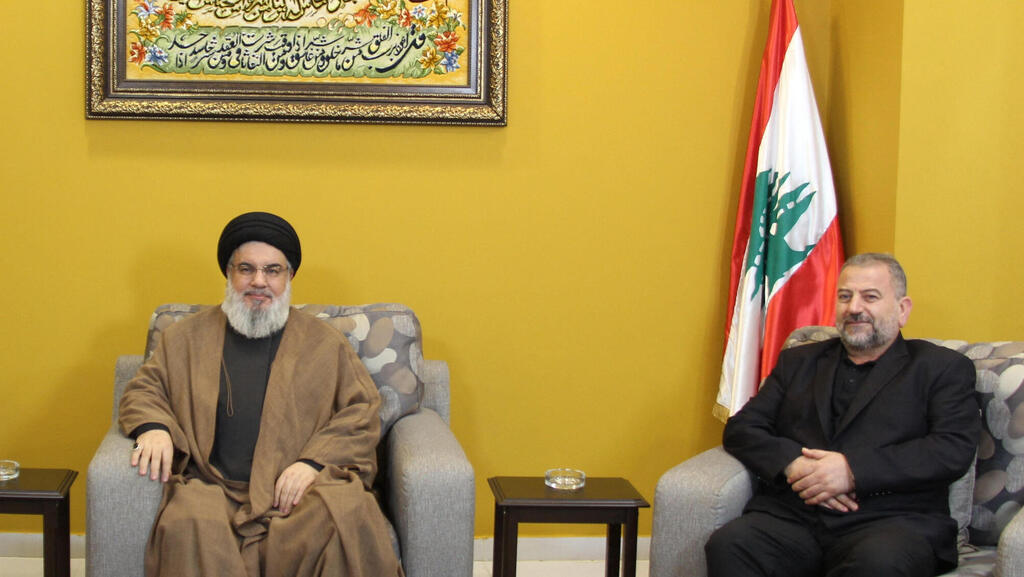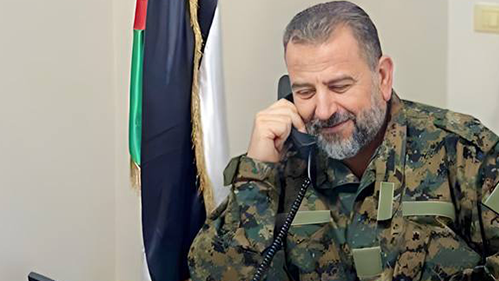Getting your Trinity Audio player ready...
Saleh al-Arouri assasination
Saleh al-Arouri who was killed in Beirut on Tuesday in an explosion allegedly caused by an Israeli targeted drone attack was described the the Hamas terror group as the architect of the October 7 massacre. He was a veteran of 15 years in Israeli jails and after being deported from Israel, spend years traveling around the Muslim world until he settled in Beirut, where he was killed.
Read more:
Al-Arouri was the deputy to Ismail Haniyeh, head of the Hamas political office who is based in Qatar and was also responsible for the terror group's military wing in the West Bank. He was behind the abduction and killing of three Israeli youths in 2014, which led to a 51-day war between Israel and Hamas in Gaza. Following the abduction and murder of the boys Israel demolished his West Bank home.
He was born in 1966 in the village of Arura, near Ramallah. He was raised as a devout Muslim and his father was the administrator of the local mosque. At 19 he began studying Islamic law (Sharia) at the Hebron University, which was known as a stronghold of the Muslim Brothers. There he demonstrated his political prowess and stood out as a member of the student Islamic chapter.
After the founding of the Hamas movement in Gaza, by Sheikh Ahmed Yassin, al-Arouri was tapped to become its representative in the West Bank. He joined Hamas in 1990 first tasked with establishing a terror infrastructure in the Hebron area and later founding the Hamas military wing's arm in the entire region.
One outstanding talent he possessed was the ability to enlist loyal operatives and provide them with weapons and armament. Shin Bet and FBI documents note how in 1992, an American citizen was arrested in Israel and revealed to the Shin Bet in his interrogation that he met al-Arouri at Hebron University and had transferred $48,000 to him for the purchase of guns to commit terror attacks. When he was arrested four months later, al-Arouri said the sum he received was $96,000 and the guns purchased were used in an attack that killed a soldier in the reserves. He then explained how he had helped the 2-man terror team to escape Israel on rubber boats leaving Rafah.
He used his time in prison to solidify his leadership of the prisoners and succeeded in negotiating better terms for them from their Israeli jailors. He also competed for position with another Hamas prisoner, Yahya Sinwar which led to the two's contentious relations since.
"There is no doubt that he was a very dominant figure, a leader with exceptional abilities," former Shin Bet official Micha Kobi said in an interview last April. "He did as he wished in jail. He led strikes, send messengers to senior prison Authority members – all in order to secure better conditions for the convicted terrorists.
Kobi said he also continued his terror activity from prison and found creative ways to communicate with his operatives. "He was one of those who developed new management and communication methods with new recruits. He is very cunning and managed to fool his jailors.
In 2017 he was chosen as the chairman of the Hamas political bureau, as a representative of the pro-Iranian faction, which advocated from close ties with Iran and Hezbollah.
In a recent interview al-Arouri said: "I feel like I have lived too long and exceeded my life expectancy. I praise a martyr's death."






